Glycine is a non-essential amino acid found in our body naturally. However, we can also obtain it through food and supplements. Glycine is produced from plant products such as soybeans and corn through a fermentation process. In this process, microorganisms are used to break down the sugars present in these products and obtain Glycine.
In the cosmetic industry, Glycine is used in formulations of skin and hair care products. Glycine is a very versatile ingredient that is used in creams, lotions, toners, shampoos, and conditioners, among others. Glycine is especially useful in the preparation of products for dry, mature or damaged skin.
In addition to its moisturizing, softening, and repairing properties, Glycine can also help improve skin elasticity and firmness by stimulating collagen production. Glycine also has antioxidant properties, which means it can protect the skin against damage caused by free radicals and other external agents such as UV radiation and pollution.
Glycine benefits for skin and hair when used topically
Glycine is an ingredient that can bring many benefits to our skin and hair when used topically. Here are some of the most prominent:
Benefits of Glycine for the skin:
- Moisturizes and softens the skin: Glycine is an ingredient that helps retain moisture in the skin, making it ideal for dry or dehydrated skin. In addition, it has smoothing properties that help improve skin texture.
- Stimulates collagen production: Glycine is an important component of collagen, a protein that is part of the skin's structure. By stimulating collagen production, Glycine can help improve skin elasticity and firmness.
- Protects against environmental damage: Glycine has antioxidant properties, which means that it can help protect the skin against damage caused by free radicals and other external agents such as UV radiation and pollution.
Glycine benefits for hair:
- Strengthens hair: Glycine is an ingredient that can strengthen hair and prevent breakage thanks to its ability to stimulate the production of keratin, a protein that is part of the hair structure.
- Improves hair texture: Glycine has softening properties that can help improve hair texture, making it more manageable and soft to the touch.
- Reduces frizz: Glycine can help reduce frizz and frizzy hair, leaving it softer and silkier.
Who can benefit from using Glycine?
Glycine can be beneficial for all skin and hair types, but there are certain types that may benefit more from using products with this ingredient.
- Benefits of Glycine according to skin type:
- Dry skin: Glycine is a moisturizing ingredient that can help retain moisture in the skin, making it ideal for dry and dehydrated skin.
- Mature skin: Glycine stimulates collagen production, making it an ideal ingredient for mature skin that needs to improve elasticity and firmness.
- Damaged skin: Glycine has repairing properties that can help improve the health of skin damaged by the sun, pollution and other external agents.
- Benefits of Glycine according to the type of hair:
- Fine and weakened hair: Glycine can strengthen hair and prevent breakage, making it ideal for fine and weakened hair.
- Dry and damaged hair: Glycine can hydrate and repair dry and damaged hair, improving its texture and softness.
- Frizzy and unruly hair: Glycine can reduce frizz and frizz in the hair, leaving it softer and silkier.
What products can I make using Glycine?
Glycine can be used in a wide variety of skin and hair care products. Some ideas of products that you can make with Glycine are:
- Moisturizing creams for dry or mature skin
- Hair masks for dry and damaged hair
- Anti-aging serums for the face
- Shampoos and conditioners for fine and weakened hair
The recommended dose of Glycine in cosmetic products is 0.5% to 5%. In other words, for every 100 grams of product, between 0.5 and 5 grams of Glycine can be added.
It is important to note that the exact dosage will depend on the type of product and the concentration of other ingredients. For this reason, it is advisable to carry out formulation tests to determine the optimal dose of Glycine for each product.
What other cosmetic assets are combined with Glycine?
Glycine can be combined with other cosmetic active ingredients to enhance its benefits and properties on the skin and hair. Some of the assets that combine well with Glycine are:
-
Hyaluronic Acid: It is a moisturizing ingredient that combines well with Glycine to enhance its moisturizing and softening properties on the skin.
-
Jojoba oil: it is a nourishing and repairing ingredient that can be combined with Glycine to improve hair health and prevent breakage.
-
Vitamin C: is an antioxidant that can be combined with Glycine to protect the skin against environmental damage and improve its luminosity.
-
Collagen: is a protein that is part of the structure of the skin and hair. By combining Glycine with collagen, the benefits of both ingredients can be enhanced.
-
Rosehip Oil: it is a regenerative and repairing vegetable oil that combines well with Glycine to improve skin health and prevent signs of aging.
Difference between glycine and glycinate in natural cosmetics
Glycine and glycinate are two different compounds that are used in natural cosmetics. Glycine is a non-essential amino acid present in our body and in many foods, while glycinate is the salt of glycine and is produced through a chemical reaction process.
In natural cosmetics, both compounds are used for their benefits for the skin and hair. Glycine is used as an active ingredient in many personal care products, such as moisturizers, lotions, and shampoos, due to its ability to hydrate and soften skin and hair. It is also used in aromatherapy products and handmade soaps due to its emulsifying properties.
Regarding its use in natural cosmetics, glycine and glycinate have different applications and benefits. Glycine is a moisturizing and softening ingredient that is beneficial for all skin and hair types, while glycinate is mainly used as a preservative in cosmetic products.
It is important to note that both glycine and glycinate should be used in recommended doses and combined with other suitable active ingredients to maximize their benefits for skin and hair. Consultation with a dermatologist or cosmetologist is recommended before using any personal care products containing glycine or glycinate.
In summary, Glycine is an ingredient that can bring many benefits to our skin and hair when used topically. It is a moisturizing, softening and repairing ingredient that can be useful for dry, mature or damaged skin, as well as fine, dry or frizzy hair. In addition, it can be combined with other cosmetic active ingredients to enhance its benefits and properties. If you want to test the benefits of Glycine in your homemade cosmetic products, remember to follow the dosage recommendations and perform formulation tests to determine the optimal dose for each product.














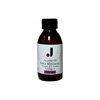
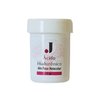
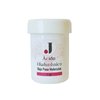
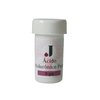
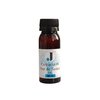
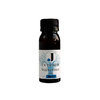
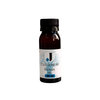
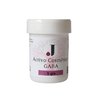
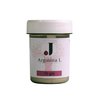
 tienda@ladespensadeljabon.com
tienda@ladespensadeljabon.com  Location
Location (+34 ) 944 657 841
(+34 ) 944 657 841




 (+34 ) 608 651 314
(+34 ) 608 651 314